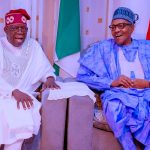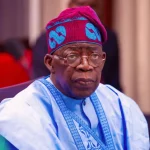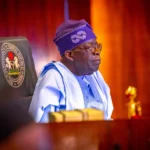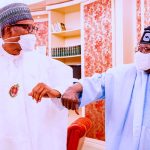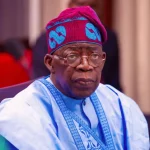President Bola Tinubu will mark one year in office within the next 30 days. This milestone is anticipated to evoke mixed responses from both his proponents and detractors. A focal point where many Nigerians hope to see a departure from the approach of his predecessor, Muhammadu Buhari, is in the realm of Human Resources Management.
Tinubu presently leads the largest federal executive council in recent memory, consisting of 50 members. Nevertheless, several appointees have maintained a low profile since assuming their roles. As part of the prelude to Tinubu’s first year in office, DAILY POST evaluates his policies in light of his promises and the agenda outlined in his manifesto, termed the “renewed hope agenda.” Additionally, DAILY POST scrutinizes certain ministers who have been notably reticent since their appointment in August 2023.
During his campaign, President Tinubu emphasized his commitment to being a more hands-on manager of “people,” a sentiment elucidated further by former Governor Babatunde Fashola, who likened Tinubu to a proactive coach engaged in the game, contrasting with Buhari’s more hands-off approach, akin to allowing players autonomy.
The establishment of the Hadiza Bala-led committee to assess the ministers’ performance provided a glimmer of hope to Nigerians that ministers wouldn’t coast through their tenure, as some did during Buhari’s administration, serving eight years without significant impact.
Below is a summary of ministers perceived to have been inactive since their appointment:
- Sa’idu Akali (Transportation): Despite overseeing a critical sector like railway transportation, Akali’s tenure has been notably silent, prompting speculation about the status of ongoing projects initiated by the previous administration.
- Lola Ade-John (Tourism): Assigned to the Ministry of Tourism despite a background in IT and finance, Ade-John’s tenure has been marked by minimal activity, raising questions about the realization of promised initiatives such as the establishment of a media city.
- Hannatu Musawa (Minister of Culture): Musawa’s ministry lacks a discernible agenda regarding Culture and Tourism in Nigeria, aside from organizing a recent retreat.
- Ibrahim Gaidam/Imaan Suleiman-Ibrahim (Police Affairs): Despite the president’s emphasis on police reform and internal security, both ministers have been relatively inactive, failing to address pressing issues like police harassment and extortion.
- Uche Nnaji (Innovation, Science, and Technology): Despite almost a year in office, Nnaji remains relatively unknown, with little visibility on his ministry’s activities.
- Joseph Utsev/Muhammed Goronyo (Water Resources): Both Utsev and Goronyo have maintained a low profile since their appointment, lacking a clear plan for the ministry’s activities.
- Jamila Bio Ibrahim (Youth): Ibrahim’s tenure has been marked by silence regarding her plans for the youth, following controversy surrounding her predecessor’s appointment.
- Ekperikpe Ekpo (Gas): Despite Tinubu’s emphasis on gas resources, Ekpo, the Minister of State for Gas, has remained inactive since his appointment.
- Gboyega Oyetola (Marine and Blue Economy): Despite the curiosity surrounding the newly established ministry, Oyetola’s tenure has been characterized by minimal activity, leaving Nigerians eager for updates on the ministry’s endeavors.
Overall, these ministers’ perceived inactivity raises concerns about the government’s commitment to its stated objectives and promises.



